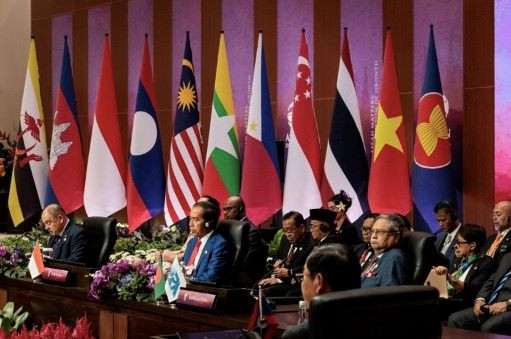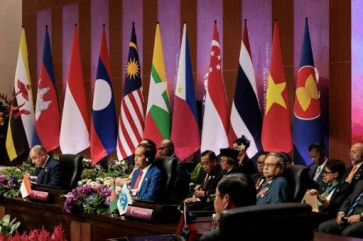Popular Reads
Top Results
Can't find what you're looking for?
View all search resultsPopular Reads
Top Results
Can't find what you're looking for?
View all search resultsUnity is key as ASEAN stands at a pivotal crossroad
Southeast Asia must remain open to all countries, ensuring respect from the competing great powers who view the region both as a thoroughfare and as an arena.
Change text size
Gift Premium Articles
to Anyone
A
SEAN is at a crucial juncture. As a key strategic waterway for world trade, ASEAN plays a vital role in international security and economic prosperity, not least for major powers.
It is a key convenor of regional countries, big and small. In today’s world, it must make critical decisions to ensure the region's stability and the well-being of its member states.
ASEAN’s doctrines and policies, like those of any regional organization, have historically been shaped by its geographical characteristics, such as location and proximity, and are more pronounced during times of tension and conflict.
Conversely, in times of relative peace, these factors can safely recede to the background, without wholly disappearing, ceding ground to institutions- and norms-building.
During the Cold War, as a new regional organization, ASEAN focused on ensuring peaceful relations among its members and building “regional resilience”. Doctrines such as the 1971 Southeast Asia as a Zone of Peace, Freedom and Neutrality (ZOPFAN) and the 1976 Treaty of Amity and Cooperation in Southeast Asia (TAC) were promulgated.
ASEAN’s survival amid major power competition relied not on great power guarantees, but on better relations among its members, a concept known as regional resilience based on national resilience.
In the post-Cold War era, ASEAN shifted its focus to norms- and institutions-building, resulting in the establishment of key institutions of the region’s security architecture: the ASEAN Regional Forum, ASEAN Plus Three (China, Japan and Korea), the East Asia Summit (including Australia, China, India, Japan, Korea, New Zealand, Russia and the United States) and the ASEAN Defense Ministers Meeting Plus (ADMM Plus).



















